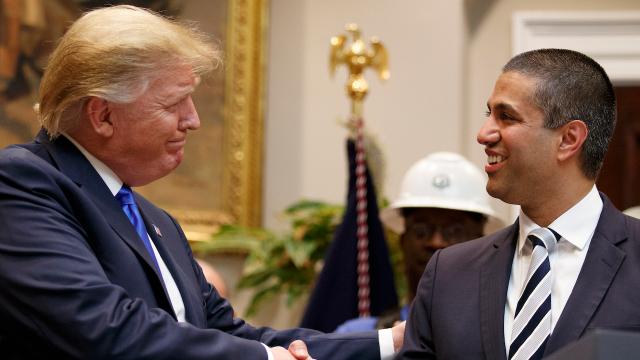The Federal Communications Commission (FCC) has announced that it will move to block China Mobile, the largest telecom company in mainland China, from offering services in the United States. The effort comes at the direction of the White House and still needs to be approved at the FCC’s May 9 meeting.
“Safeguarding our communications networks is critical to our national security,” FCC chairman Ajit Pai said in a statement released this afternoon. “After reviewing the evidence in this proceeding, including the input provided by other federal agencies, it is clear that China Mobile’s application to provide telecommunications services in our country raises substantial and serious national security and law enforcement risks.”
“Therefore, I do not believe that approving it would be in the public interest,” Pai continued. “I hope that my colleagues will join me in voting to reject China Mobile’s application.”
China Mobile Ltd. is owned by the Chinese government and currently has over 928 million subscribers in mainland China. Despite having a huge presence in its home country, the company has a relatively small footprint overseas, including service in Pakistan and a limited presence in the UK. China Mobile did not immediately respond to Gizmodo’s request for comment.
The Chinese telecom company originally filed to obtain a licence to operate in the U.S. in 2011, but has hit hurdles from the beginning. China Mobile’s legal counsel even wrote a letter to the FCC in 2013 stating that this “extreme delay” was hurting its business chances in the U.S.
The National Telecommunications and Information Administration, which is housed in the Department of Commerce, released a statement in July of 2018 advising the FCC to deny China Mobile’s request.
The decision comes on the heels of widespread bans of tech products from the other side of the Iron Firewall over espionage concerns. The U.S. Department charged Chinese tech giant Huawei with fraud, obstruction of justice, and the theft of trade secrets back in January and Huawei has countered with its own suit against the U.S. government in March. And Russian security firm Kaspersky has been banned from providing telecom equipment to the U.S. government.
All of the U.S.-based tech bans are related to concerns that the Russian and Chinese governments may get special access to the data of Americans and American corporations by pressuring companies like China Mobile or Kaspersky in some way. In recent months Huawei executives have countered such criticism by pointing out that American intelligence agencies regularly demand compliance through things like the CLOUD ACT. Passed in 2018, the legislation allows law enforcement agencies to compel U.S. technology companies to hand over information if they gain a warrant.
Huawei’s rotating chairman Guo Ping went a step further on stage at Mobile World Congress in February, taunting the U.S. government with mention of whistleblower Edward Snowden’s revelations that the NSA was hoovering up a ton of data from Americans.
“Prism, prism on the wall, who’s the most trustworthy of them all?” Guo said on stage as a logo for the NSA’s controversial PRISM program appeared behind him. “It’s an important question. And if you don’t understand that, you can go ask Edward Snowden.”
Another day, another battle over technology in the FCC]
